The Longwood Elementary counseling enriched classroom team at HEART held a very successful family fun pizza night at Roundtable Pizza Hayward. One of HEART’s intentions this past school year was to find more time for community building and Family engagement. There was 100% turnout by our families and all of the Longwood team attended. The family feedback shared was that they all had a wonderful time and loved having the chance to connect with other families with shared experiences. The team all shared that it was a great experience to spend time with families having fun outside of the school day. This was such a success that our program has planned a family movie night for all seven of our classrooms to see Inside Out 2 on June 18th. We’re looking forward to continuing these events with our families!
|
The Longwood Elementary counseling enriched classroom team at HEART held a very successful family fun pizza night at Roundtable Pizza Hayward. One of HEART’s intentions this past school year was to find more time for community building and Family engagement. There was 100% turnout by our families and all of the Longwood team attended. The family feedback shared was that they all had a wonderful time and loved having the chance to connect with other families with shared experiences. The team all shared that it was a great experience to spend time with families having fun outside of the school day. This was such a success that our program has planned a family movie night for all seven of our classrooms to see Inside Out 2 on June 18th. We’re looking forward to continuing these events with our families! Blog Post By: Leslie Davidson, Clinical Director
0 Comments
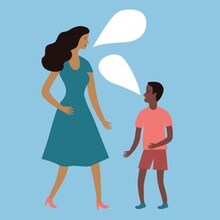 Our annual Unconditional Education Student and Client Satisfaction Survey kicked off this Spring to gather unique perspectives, highlights, ideas, and feedback from the youth (8 years-old and above) across all our school-based programs. Our team is always eager to learn more about how we can continue providing services to best support the youth we serve. The insights the youth in our programs have provided help shape and identify how we can continue to improve our services and supports. With 68% of our student population participating in the client satisfaction survey this year, here are some highlights from the responses:
We also heard directly from students about how their lives have changed with Seneca, things that they have learned, and how we can improve our services and support. Our youth voiced key themes of making more school friends and strengthening relationships in life, feeling successful and confident at school, and learning new skills towards developing personal growth. Here are a few direct positive quotes that embodies those themes: “I get along better with kids at school, they respect me and are nice to me.” As much as it’s rewarding to hear positive affirmations about how our services are being felt, our team will make sure to acknowledge any areas for growth to continually refine and strengthen the services we provide for all stakeholders. Blog Post By: William Chiang, Strategic Initiatives Senior Project Manager
When it comes to using literacy to celebrate different cultures, John Muir Elementary has the magic touch. This K-5 school located in the lower Haight neighborhood of San Francisco is in their second year of partnership with Seneca. Unconditional Education Coach, Raquel Monge, has stepped in to support Muir's "Read-In" program. During each cultural celebration month, the school brings in members of that cultural/ethnic group to read a story to each classroom. During Black History month, Raquel shared her perspective on the African diaspora in Latin America and read Michelle Obama: Former First Lady and Role Model by Grace Hansen to a bilingual second grade class. Muir celebrates LGBTQ+ Pride month early, and this year, Raquel invited Jonathan Tugbenyoh, Director of School Partnerships, to read Papa, Daddy, and Riley by Seamus Kirst to a bilingual Kindergarten class. Next up, Muir will be a Multicultural Celebration in the month of May. Want to learn more about this innovative way of bringing literacy into cultural celebrations? Reach out to [email protected]. Blog Post By: Jonathan Barnett Tugbenyoh, Director of School Partnerships
Located in Fremont, California, our Walters Middles School CE classroom is part of our longest partnership with the Fremont Unified School District. This classroom is one of our most unique since we get the opportunity to have a Seneca teacher. Our Walters classroom teaches 6th, 7th, and 8th grade students. Most of our students come from our elementary CE classroom in Fremont to ensure a smooth transition into middle school. Our amazing teacher Vina Nabor has created a strong community where our students get to be creative with their learning. During this year our students read a couple of plays and had fun choosing a character and changing their voice when reading out loud. For science, the students have had an opportunity to do hands-on projects to help them understand various Science topics. Being able to learn in a fun creative way has brought back some of the interest and creativity in subjects such as Science and History. Our therapist Shriya and counselors Sam and Melinda are always looking for creative ways to keep our students engaged. They have engaged in activities such as Shark Tank during the long testing days or created their own board game to work on some of those social skills. We are lucky to have the Walters team be part of our Constellation Program! Blog Post By: Mariana Aranda, Assistant Director of School Partnerships
 Our Unconditional Education Partnership at Washington Elementary is built on the foundational values of love, compassion, and joy. We believe that Kindness is a powerful tool for nurturing the well-being of everyone and is a significant step towards empowering our students to be the best versions of themselves. Kindness week serves as a reminder to everyone in the school community of the importance of treating others with compassion and respect, not just during the designated week but every day. By dedicating specific time and effort to celebrating Kindness, Washington Elementary not only enhances students’ social and emotional development but also strengthens the bonds within the school community. It cultivates a culture where acts of kindness are not just encouraged but celebrated, reinforcing the notion that everyone has a role to play in creating a positive culture and climate. At Washington Elementary school, Kindness week has become a tradition, and every year during the second week in February, the school organizes week-long activities and challenges for students to participate in class and during lunch/recess. Previous projects include making “Kindness Chains”, “Kindness Jars”, “Kindness Bingo”, and reading different books on kindness with discussion prompts. With the goal of bringing the entire school community together, the school organizes an art project that is installed in a common area. This year the art project was for each student to create a “Square on Kindness” with their buddy student sharing either their favorite Kindness quote, a colorful drawing, or sharing what kindness means to them. The squares were all combined to create a giant Kindness poster to display in the library. The culminating art project, the Kindness poster, symbolizes the collective commitment of the school community to uphold and promote kindness, respect, and empathy. Displaying this poster prominently in the library not only serves as a visual reminder of the values espoused by Washington Elementary but also inspires ongoing acts of kindness and reinforces the sense of belonging among students, teachers, and staff. Moreover, by involving students in planning and leading kindness activities, the school empowers them to take ownership of their school culture and climate and become active contributors. This not only boosts their self-esteem but also fosters leadership skills and a sense of responsibility towards others. Overall, Kindness week at Washington Elementary goes beyond just a week-long celebration; it embodies the school’s dedication to nurturing the well-being of its students and fostering a supportive and inclusive learning environment where everyone can thrive. Through initiatives like Kindness week, Washington Elementary is laying the groundwork for a future generation that values empathy, compassion, and kindness in all aspects of life. Blog Bost By: Puja Satwani, Director of School Partnerships
 In our work and in our teams, we’ve talked a lot about anti-oppression, we have also realized that the term (although super important in its emphasis on dismantling institutions of unjust power) seemed to be missing something. We have also become interested in liberation and decolonial lenses that look more deeply at the ways that oppression, identity, and power operate in our work. Granted, there are a lot of ways to look at oppression and how it connects to a larger system of inequality. While oppression focuses on the forces of powers that inhibit things about a person or community, liberation speaks to the possibility of constructive change. To liberate is to reclaim and reposition in connection with others and the world around them. According to Castro and Afuape (2016) liberation is linked to “the transformative process of ‘conscientization’, in which we are both liberated and liberate, is dialectical, dialogical, relational and co-created. Therefore, no one person does the ‘liberating’. The development of critical consciousnesses is liberatory, as it creates space to reflect; be shaped by and shape the world and see new possibilities as creative ‘actors’ (rather than passive subjects) in our own experience.” One of the fore-thinkers around a more liberational approach to psychotherapy was connected to Ignacio Martin-Baro. Drawing on Liberation Theology’s “preferential option for the poor,” Martin-Baro called on all of psychology—whether social, clinical, or educational—to stand on the side of the oppressed people of Latin America and join with them in the struggle for social justice (Gaztambide 2019). Inspired by Paulo Freire’s critical pedagogy, Martin-Baro collaborated with marginalized communities in El Salvador to develop research projects that empowered them to articulate their experience of political dislocation and develop a critical consciousness of how those experiences were related to oppressive power structures. Unfortunately, he was murdered by the government of El Salvador because of his dissident viewpoints and his access to communal power through his religious community. Through his experiences, Martin-Baro developed ideas around how one can engage with Liberation Psychology through the following approaches, which have also been re-interpreted into applications for psychotherapy. They include:
We invite all of our colleagues to think about how they may utilize some of these approaches in their work with young folks. Let’s start a discussion in our small groups and communities about whether these ideas feel helpful to the work that we do both on an individual and larger ecological scale. Moving into Praxis:
Thank you for reading, and for the work you do! Blog Post By: The Mosaic and Pathways Team
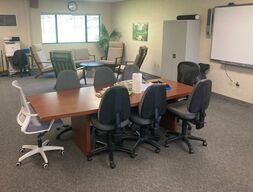 At Alhambra High School's Counseling Enriched Classroom, we believe that the connections you make and the emotions you feel can shape your behavior and your experience of the world. That's why we work hard to create a culture that values connections, inclusion, and positivity. Here are some of the specific things we do to uphold these values.
Blog Post By: Khomsai Ounniyom, Assistant Director of School Partnerships
At the heart of Unconditional Education are the relationships we build. A commitment for each and every student to feel supported, welcomed, connected and safe in their school community. However, it can be easy to lose hope and sight of this vision as we support school sites where the impact of violence is ongoing, and administrators and staff are managing crises on a daily basis. As of January 2024, it has been one year since Seneca began our partnership with Monroe Middle School. While it often takes more time to build our relationships and embed ourselves in a school community, the administrative team at Monroe Middle School, led by their principal Ruth Stephens Radle, has embraced us fully. She shines a light on the many challenges students and families face in the Monroe Middle School community and strives to improve upon the school climate and support for young people. For her this means- first and foremost - focusing on school staff’s relationships with the youth. Her commitment to relationship is exemplified by one impactful activity that I’d like to highlight as an inspiring practice– the dot activity. Ruth shares her inspiration to bring the 'dot activity' to Monroe Middle School came from Project Cornerstone, where their education director looked into the research about what drives resiliency in students. Not surprisingly, students who do well usually have at least one adult in their life they feel connected to and supported by. This is at the heart of what Seneca Family of Agencies believes as well, which makes our partnership a perfect match. At an all staff meeting in the beginning of the year, Ruth posts the names and pictures of all 700+ students from her middle school on the wall, divided by grade level. Each teacher is then asked to look at the faces of all the young students and place a yellow dot sticker to the left of a student’s photo if they have a relationship with the student in which the student would go to them for help if needed, and place a red dot sticker to the right of the student's picture if they have any worries about the student, whether it is academic, social- emotional, or behavioral concerns. Looking around the room you can immediately see a snapshot of how all the students are doing, as well as how the teachers feel about their relationships with the youth. Ruth shares that often the students who have a lot of red dots also have a lot of yellow dots. It is the students with no yellow dots that she is the most worried about. In the next meeting, Ruth engages her whole staff team to focus on the students with no yellow dots, asking each teacher to choose 3-4 students who they will intentionally reach out to in the next few weeks. This year Ruth shares she also provided teachers with specific, research-based strategies to choose from to engage with the students they have identified. For example, a strategy called the "2 x 10" focuses on engaging the student in a 2-minute conversation over 10 consecutive days, working on building a relationship and getting to know the student outside of the classroom. The Monroe Middle School's intervention team then focuses their efforts on the students who had 3 or more red dots, delving into other data measures to further determine what the risk/need is for each of those students and how to address those needs. This is now the 2nd year Ruth has had Monroe Middle School's teachers engage in the 'dot activity'. She shares there are still a lot of barriers to overcome - mostly in people's mindset about the importance of this activity and the amount of time needed to dedicate to it, but as Ruth quotes Rita Peterson's Ted Talk, "kids don't learn from teachers they don't like". Relationships are what is critically important to building students' resiliency and success, not only in education but also in life. Partnering with Ruth and Monroe Middle School is an exciting opportunity for us to join in the vision of expanding teacher's perspectives from being "hyper-focused" on certain students to seeing the connectedness and community-health across the entire student-body. Seneca’s Unconditional Education model truly values celebrating what's going well for children, families and schools, and the Dot Activity allows the whole school team to do just that. Additionally, Ruth's vision of collaboration emphasizes that it is not any one person's job to "carry it all". Working together we can have an accelerated impact on the lives of our students and "all lift this together". Just as Unconditional Education aims to help every student thrive, Ruth's vision is that all the adults at Monroe Middle School will see their part in eliminating barriers through coming together as a community. As Rita Peterson reminds us - "Every child deserves a champion, an adult who will never give up on them." Blog Post By: Jennifer Lin, Clinical Supervisor
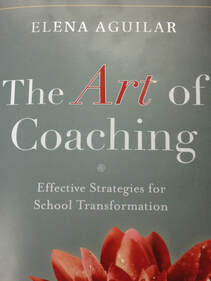 During the 23-24 school year, behavior strand leaders participate in a bi-weekly learning community. This space allows leaders from different programs to gather, share, and learn from one another in a free-flowing manner. This year we have focused our efforts on coaching and supervision. Our main resource is “The Art of Coaching” by Elena Aguilar. The books states, “The Art of Coaching offers all the tools necessary for professionals who coach educators. It demystifies the process of coaching with easy-to-apply, immediately actionable ideas. Elena Aguilar offers a model for transformational coaching designed for new and veteran coaches, teacher leaders, mentors, principals, and other administrators.” The information below has helped guide my thinking as I support others with their beliefs around behaviors, academics, and the educational system. In chapter 3 of the “Art of Coaching”, the author introduces a framework titled “The Ladder of Inference”. This framework provides a tool to see how our beliefs are formed and why we do what we do. The “Ladder of Inference” is formed around 7 concepts. Concept 1: Observable Data and Experiences Concept 2: Selected Data Concept 3: Added Meaning Concept 4: Assumptions Concept 5: Conclusions Concept 6: Beliefs Concept 7: Actions The role of a coach is to support others with moving through the steps listed above to form their belief system. As leaders, we must actively explore our beliefs systems, to see transformational and sustained change within our school systems. Finally, “The ladder of Inference is a tool to help us delineate the cognitive steps that lead to our belief system, When we guide clients down the ladder, they can explore other ladders to climb up. This is how we dismantle racist belief systems, or beliefs systems about boys and education, or girls and math, and so on.”-Elena Aguilar Blog Post By: Davonte Wilson, Assistant Director of School PartnershipsUtilizing Data to Drive Tier 1 Interventions: A Success Story from Verde Elementary School3/11/2024 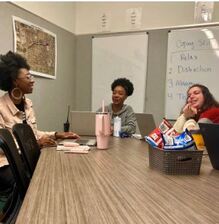 Creating effective interventions to address behavior requires a strategic approach, and at Verde Elementary School, we've embraced the power of data-driven decision-making to implement Tier 1 interventions that make a meaningful impact. At the core of our strategy is the School-Wide Information System (SWIS), a web-based platform where behavior and discipline referrals are logged and analyzed. This system enables us to efficiently gather and dissect data, providing insights into who, what, where, when, and why behaviors are occurring. Armed with this information, we can develop targeted interventions to proactively address issues and minimize the time spent reacting to behavior incidents. To start, Sanita McNeally, our dedicated Behavior Support Specialist, delves into the behavior data to identify specific problem areas. With a clear problem statement in hand, our Coordination of Services Team, under the guidance of our Unconditional Education Coach, Asha Weber, formulates Specific, Measurable, Attainable, Relevant, and Time-Bound (SMART) goals. These goals serve as the foundation for our intervention plans, which focus on prevention, teaching, recognition, and correction of behavior. In one recent case, our team analyzed data from November and targeted physical aggression incidents occurring on the playground within a specific grade level. Our goal was ambitious: to reduce these incidents by 50%. We devised a multi-faceted approach, including adjusting yard supervision protocols, partnering with an agency to add additional supervisors at hot spots on the yard, implementing targeted social skills lessons, and providing conflict resolution training for staff. To reinforce positive behavior, we utilized a rewards system using Positive Behavior Interventions and Supports (PBIS) points, along with whole-class incentives for exemplary behavior. For students still struggling with aggression, we offered problem-solving conferences and specialized lessons in soccer rules, led by Sanita and our Student Support Specialist, Katryna Soto. The success of our intervention was truly a team effort, requiring careful planning and collaboration from all stakeholders. When we reconvened in February to review the data from the past eight weeks, we were thrilled to see a staggering 78.5% reduction in aggressive behavior incidents on the playground by the identified grade level. This achievement not only validates the effectiveness of our approach but also underscores the importance of ongoing data analysis in driving continuous improvement. Armed with this newfound success, our team is already looking ahead, using fresh data to identify our next goal and tailor our interventions accordingly. By harnessing the power of data and collaboration, we're creating a safer, more supportive learning environment for all students at Verde Elementary School. Together, we're making a difference—one data-driven intervention at a time. Blog Post By: Jenna Evans, Assistant Director of School Partnerships
|
Authors:School Program Partnerships We're Hiring!Interested in joining our School Program Partnerships' Team? Check out our open positions below!
Categories:
All
Archives
May 2024
|




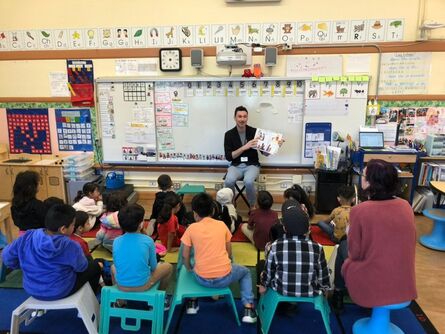

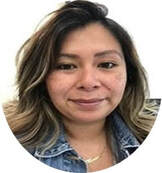
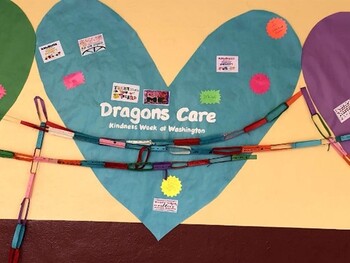
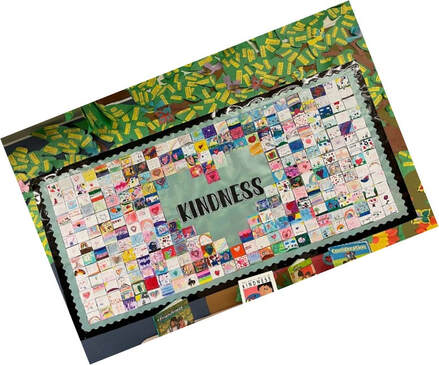
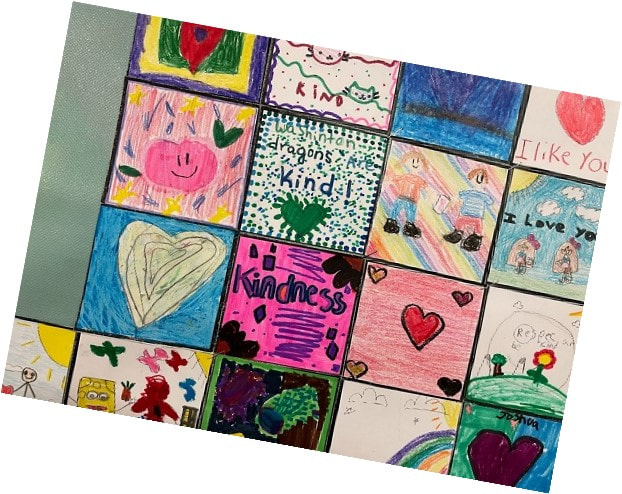
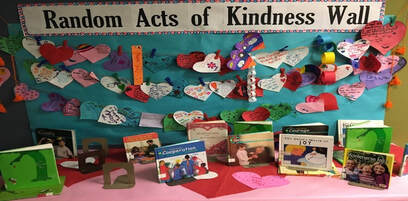
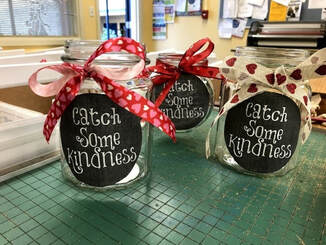
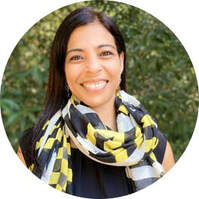
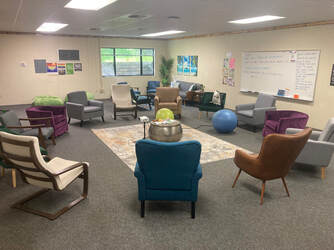


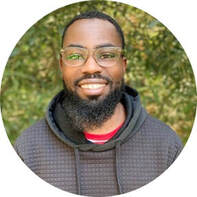

 RSS Feed
RSS Feed